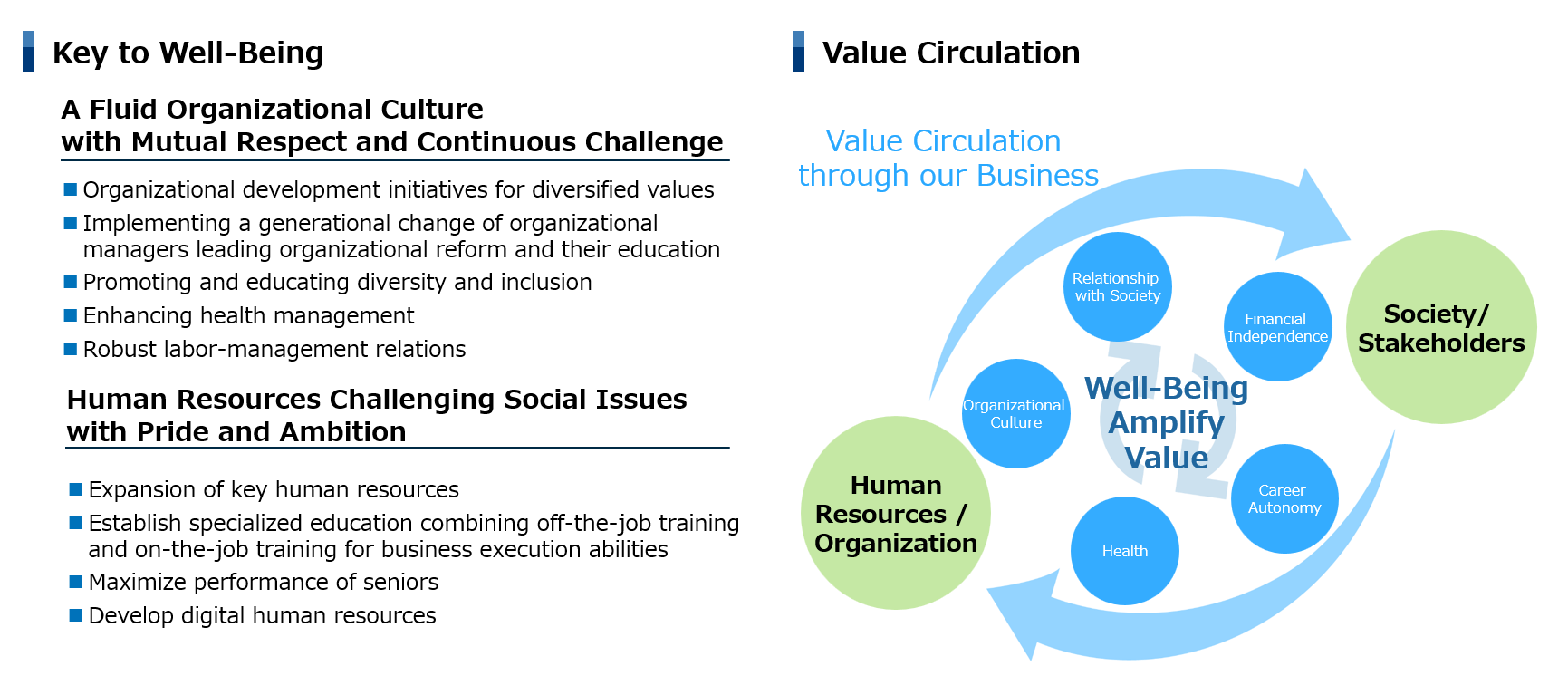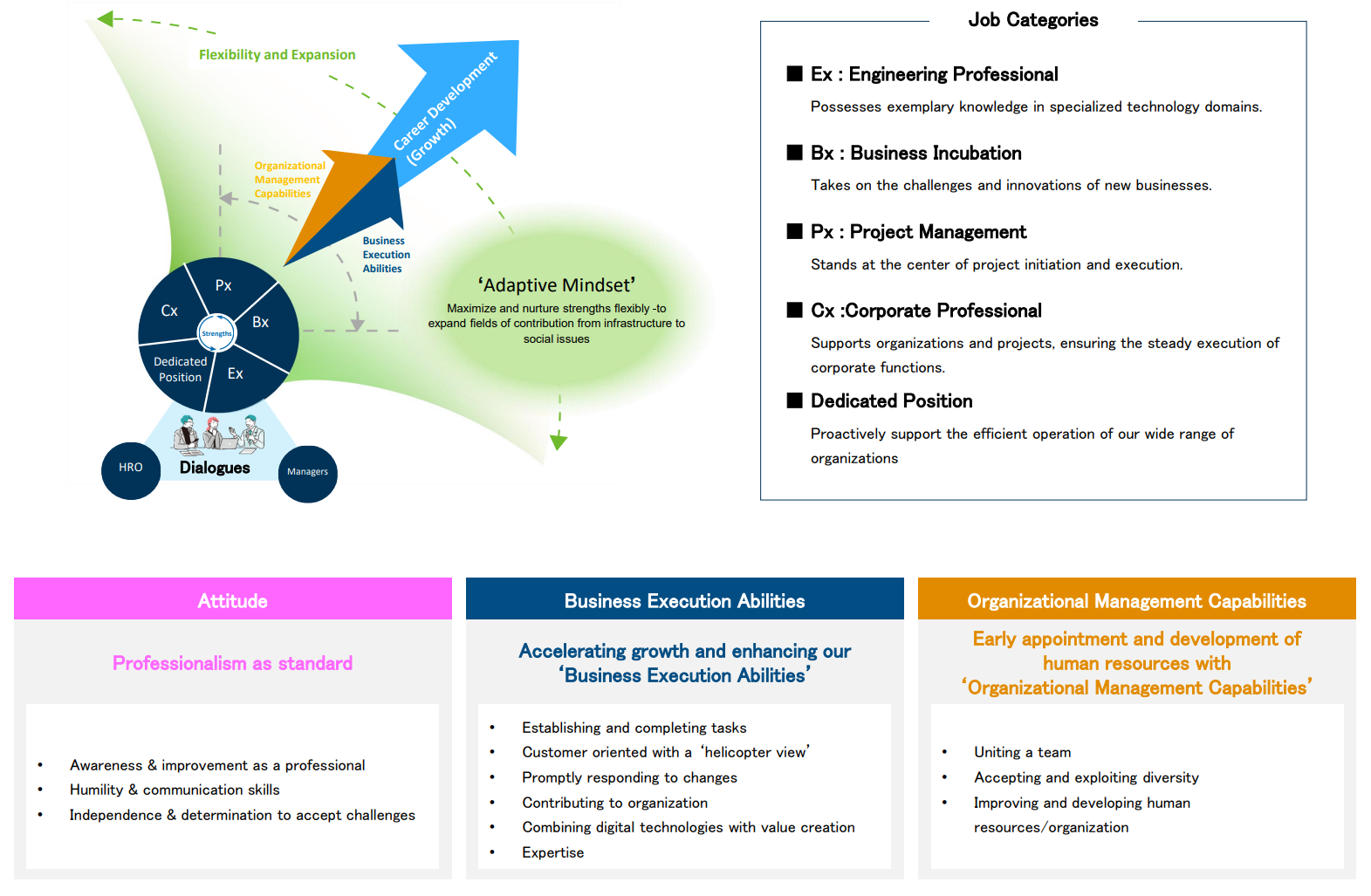Human Resources Strategy
A Fluid Organizational Culture to Challenge Business Transformation and Human Resources with an Adaptive Mindset
Our Human Resources Vision
The greatest asset of any engineering company is their human resources. Chiyoda's human resources are key to fulfill our purpose of 'Enriching Society through Engineering Value'. We have defined five Materiality (key sustainability) Issues to further strengthen our endeavours toward achieving a sustainable society through our business activities. The two key human resource factors of realizing an 'Organizational Culture that enables Diverse Human Resources to Challenge Value Creation and creating 'Human Resources addressing Social Issues Autonomously' are described below. Based on these two Materiality Issues, we continue to advance initiatives in 'Human Resource Development'.
Please scroll sideways to view
| S(Society) | ||
|---|---|---|
| Materiality |
Organizational Culture that enables Diverse Human Resources to Challenge Value Creation |
Human Resources addressing Social Issues Autonomously |
| Key Themes |
|
|
| Initiatives |
|
|
Human Resource Management
Company and Employee Well-Being through Human Resource Development and a Fluid Organizational Culture
As our most valuable asset, Chiyoda develops human resources to enhance corporate value.
The strengths of Chiyoda are our 'Fluid Organizational Culture with Mutual Respect and Continuous Challenges' and 'Human Resources Challenging Social Issues with Pride and Ambition'.We believe that enhancing the well-being of both the organization and human resources amplifies the value we provide to society and stakeholders further enhancing the well-being of the organization and human resources, creating a virtuous cycle of mutual growth. We promote human resource management by sustaining this cycle and continuously elevating both values .

Human Resource Development
Human Resources and a Company that Addresses Evolving Social Challenges
Human Resources Development focuses on enhancing Business Execution Abilities and Organizational Management Capabilities. We continue to meet increasingly diverse and complex social issues by fostering an adaptive mindset and driving business transformation. By implementing a human development strategy that combines Off-the-Job Training (Off-JT) and On-the-Job Training (OJT), we support the career development of every individual.
We define four job categories: Engineering Professional (Ex), Business Incubation (Bx), Project Management (Px), and Corporate Professional Cx) and a Dedicated Position (responsible for proactively supporting the efficient operation of our wide range of organizations). For each job category, we appoint Human Resources Officers (HROs).
HROs engage in dialogue with employees to align their career aspirations with company objectives, while simultaneously liaising with supervisors and department heads. They play a pivotal role in human resource development by leading initiatives that connect individual career goals with business strategies, including transfers, assignments, evaluations, promotions and appointments.

